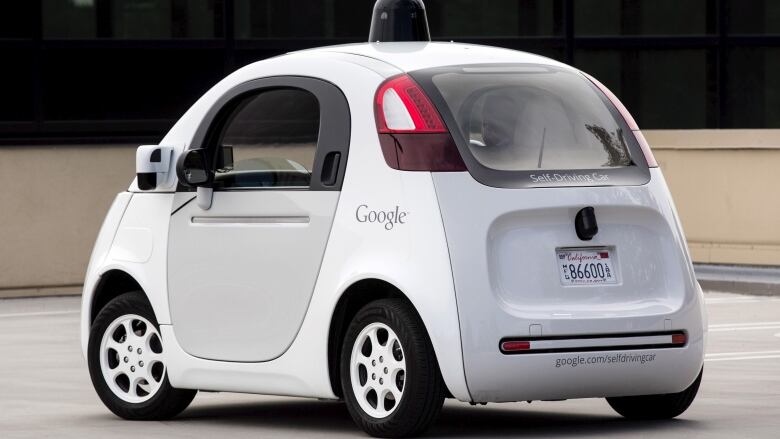Driverless cars: How will they impact Toronto in 2020?
'It's going to be disruptive,' says the city's general manager for transportation services

Toronto's public works and infrastructure committee lookedat driverless cars Monday, asking staff from the transportation services department to figure outhow the city can best prepare for their arrival.
In a letter sent to the committee, Coun. Jaye Robinson wrote on May 2: "We need to make strategic decisions now to effectively shape, rather than react to, the changing technological future of our city."
On Monday, the city's general manager for transportation services, Steven Buckley, told CBC Radio'sMetro Morningthey've already started looking at the best ways to incorporate self-drivingcars onto Toronto's streets.
"I think there's been this infatuation with the technology, and I think ultimately, we haven't stepped back and asked ourselves the question: How do we use the technology to sort of create the society and city that we want?"
Buckleysays there are two ways Torontonians could use driverless vehicles.
They could be used asprivately-owned vehicles, he says, butBuckley assertsthe more attractive option for an urban environmentis for them to be used asa mobility service similar to taxis, which would lower the cost to ridebecause a driver is no longerrequired.
That would benefitthose who don't own cars in the city, according to Buckley, but he says the biggestimpact will be placed on public safety because heexpects the vehicles to decrease the number of collisions on city streets.
But, as with any new addition to city streets, change will come with a cost.Buckley says anyone who earns money by driving right nowwill be impacted by the technology.
"It's going to be disruptive ...Our hope is we sort of get ahead of this so we are not reacting to it but planning for it."
Lookingwest
While Toronto debatesa system for these self-drivingvehicles, the city of Stratford, Ont.,is leading the way in testing driverless cars.
Back in January, Ontario became the first province to allow companies to test these vehicles on city streets, although no cars have hit the road in Stratford just yet.
More than 5 years ago, the city laidat least 50 kilometresof fibre optic cable and installed wireless antennas across Stratford, which helped builda city-wideWi-Finetwork.
On Monday,Stratford Mayor DanMathiesontold CBC Radio'sMetro Morning thatbecause of that decision,they can nowuse the network for these types of testprojects.
Mathiesonsays these cars will eventuallyuse the network to speak withlights andsignals, adhering to instructions on how toproceed.They'll also connecttodata collectors, providingdata to city management on road conditions, such as the exact co-ordinates of a pothole.
Initially, drivers will be in the cars to ensure a smoothtransition, but they could start operating on roads in Stratford as early as this fall, according to Mathieson.
According to Buckley, driverless cars could be in Toronto as early as 2020, but he says big cities will likely be on the latter end of the rolloutbecause it will take longer for those cars to be self-sufficient.
The city's transportation services team is expected to bring their recommendations back to the public works and infrastructure committee by the end of the year.












_(720p).jpg)


 OFFICIAL HD MUSIC VIDEO.jpg)
.jpg)



























































































